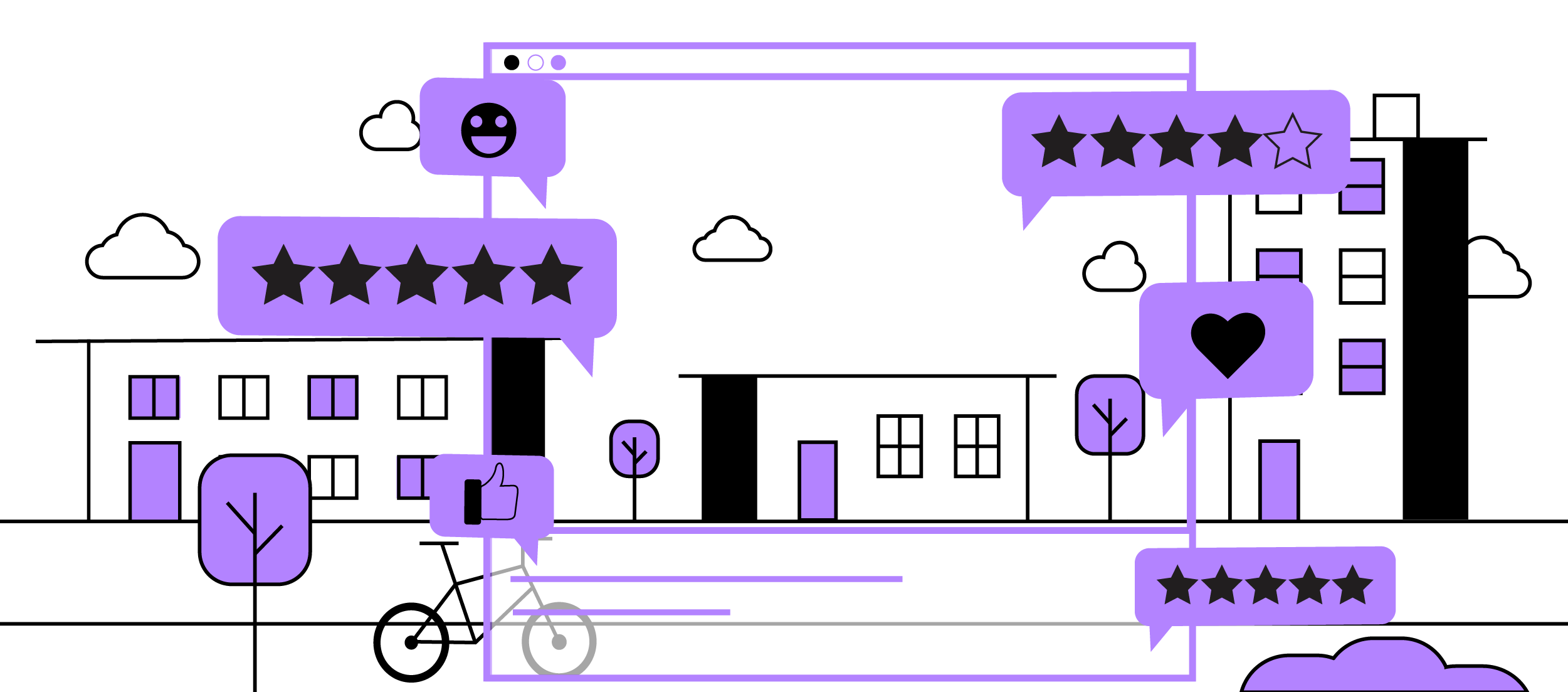Let’s clear the air. Branding is different from reputation. You’re familiar with branding or creating a unique identity that resonates with prospective residents. However, your reputation is a belief formed about your brand primarily through your customers’ or potential customers’ experienced reality. You can fake it till you make it with branding, but one thing you absolutely cannot fake is reputation. The only way to maintain a good reputation is to manage it.
What is Reputation Management?
Reputation management involves monitoring how your customers perceive your brand and actively responding to those perceptions to create an increasingly positive reputation that drives business objectives. Efforts typically include apartment marketing, PR, crisis communication, and more. Why is this important?

The Importance of your Apartment Reputation
In multifamily reputation management, having a high occupancy is the golden standard and decreasing the number of lease turnovers is a significant ingredient in that recipe. A good reputation keeps your occupancy high and lease turnover low. Utilizing powerful reputation management marketing can make your community more competitive.
Multifamily Apartment Reputation Management Strategies
Respond to reviews:
Designating a team member to monitor and address customer feedback can de-escalate negative feedback and reinforce positive portrayal. Determine the tone of voice in which you will respond to all reviews and stay consistent. It may help to determine what factors in a review qualify a public response. Now, you don’t need to fear the public arena where reviews occur. In fact, the beautiful thing about reviews is that they are public! Review platforms, such as Google, encourage transparency and honesty. Multifamily operators and marketers can take advantage of the public platform by drafting authentic and genuine responses for all to see. A company that isn’t afraid to address negative reviews publicly has both confidence and humility. Trust me, most prospective residents will find that attractive. Residents want to believe their feedback and residential experience matter because you believe they are individual human beings before they are dollar signs. That said, reviews aren’t always about damage control. Be bold and celebrate the positive reviews with gratitude. Let’s look at an example of how to respond to a negative and positive review to bolster your online reputation.
Let’s say someone wrote a review stating, “This apartment complex sucks because they took two weeks to fix my disposal after my six-year-old poured three pounds of melted gummy bears down the drain.” On the inside, you’ll probably want to say, “good grief, Miranda, how about you civilize your child,” but instead, you’ll write a kind and courteous response that acknowledges your resident’s frustration. “Miranda, We strive to promptly address all of our residents’ maintenance requests. We apologize that our team did not meet your expectations. We’ve shared your review with our maintenance lead to reflect on how we can continue refining our operations.” Reputation saved!
Here’s how to champion a positive review to reinforce a positive brand reputation. “I love living here because the property staff knows me by name and always takes the initiative to communicate with me promptly.” That’s a fantastic review! Capitalize on the opportunity with a prompt response. “Thank you for leaving us a review. We’re happy to hear we’ve made Maple Shade Apartments feel like home to you!”
Explore earned media:
Managing your apartment’s brand with content such as property websites, blogs, social pages, and video is practical. However, utilizing other sources of authority to advocate your brand on your behalf is a stronger tactic for bolstering brand credibility. Earned media can include press coverage or blog posts on websites other than your own. Consider investing in a PR firm to identify positive press opportunities for your properties in each of their corresponding local publications and news outlets.
Influencer Marketing:
An individual influencer could sway prospective residents to sign with your community. Still, a social page that reviews top attractions in your city is likely a better candidate for influencer marketing. Do some research and connect with local publications or social pages that are popular enough to be viewed by locals or those moving to your city. Social media pages that post updates on the best restaurants, business openings, seasonal attractions, outdoor activities, and more are perfect partners.
Crisis management:
We’re human, and sometimes mistakes happen even after our best efforts to prevent them. However, poor communication during or after a crisis should never happen. If your team lacks a crisis management plan, you risk escalating the situation. Silence or delay isn’t an option either, as others won’t hesitate to speak publicly into the void of silence you leave behind as you scramble to figure out what to do. If you don’t respond quickly, it may be too late to take control of the narrative. Consider your apartment reputation tanked.
Whether there’s a natural disaster in your city, a crime committed on the property, or a technological issue that prevents your residents from submitting online rent payments, you need a crisis management plan. First, ask yourself what communication channels would be appropriate for various situations. Email, social media, spokesperson, etc.? Who is responsible for sending the message to residents or preparing media responses? Who are the stakeholders you need to help craft or review an emergency message? Most importantly, how quickly can your team get an accurate and appropriate message out? Secondly, own up to the mistake and be transparent.
Historically, it never ends well for companies that attempt to cover up big problems or unethical behavior. Better to confess it yourself than address it after it’s in a headline. Finally, monitor and respond to public responses to your crisis management plan, whether it’s reviews, comments, or press. The companies that survive and thrive after a crisis are the ones that keep communicating.


